The practice of nearly 40 years of renovation shows that the good nature and superiority of democracy in our country is a regime that ensures the people's mastery in economic, political , cultural, social and spiritual aspects; highly promotes the people's role in the cause of building and defending the Fatherland. Vietnam has achieved many remarkable achievements in promoting and implementing the goal of democracy, specifically in the following aspects:
About the implementing entity
The democratic regime in our country, in essence, is a political institution in which political and social power belongs to the people; all state power belongs to the people, the foundation of which is the alliance between the working class, the peasantry and the intelligentsia; it is a regime that ensures the people's actual mastery in economic , political, social, cultural and spiritual life; it highly promotes the people's creativity in the cause of building and defending the Fatherland, under the leadership of the Party and through the socialist rule of law State. The people's mastery is not only reflected in the Constitution and laws, but is also increasingly vividly demonstrated in daily life. The implementation of meetings and dialogues between key and high-ranking leaders of the Party, State, leaders of local Party committees and authorities... with the people; The meetings between delegates and voters in preparation for the National Assembly elections create better conditions for the people to exercise their right to mastery, to exercise their right to inspect and supervise the activities of the State and to express their aspirations and opinions. That deeply demonstrates the good nature and superiority of the democratic regime in our country; clearly demonstrates the goals and motivations of socialist democracy for the development of the country.
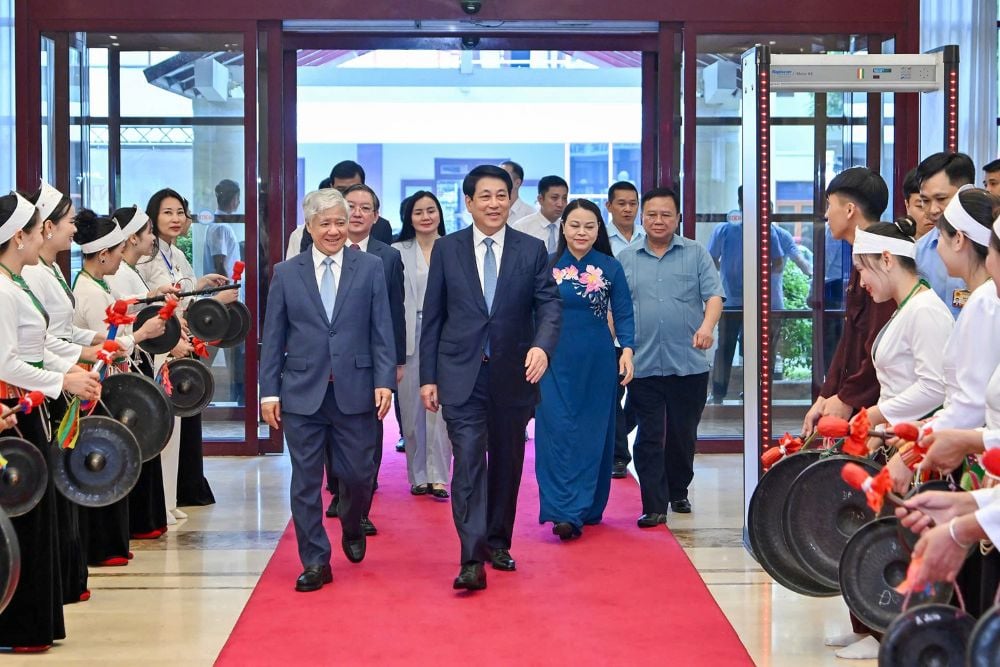
The Party plays a leading role in formulating guidelines and policies aimed at building a socialist rule-of-law state, where democracy is considered the foundation for all political, economic and social activities. Over the past nearly 40 years, many major reforms have been carried out to create a favorable legal environment for the development of democracy, especially the promulgation of important legal documents on the rights and obligations of citizens. In addition, promoting the participation of socio-political organizations and people's organizations in policy-making activities, supervising the government and reflecting the aspirations of the people. The Vietnam Fatherland Front, the Vietnam Women's Union, the Ho Chi Minh Communist Youth Union and many other social organizations play a bridging role between the government and the people, helping to bring the voice of the people into important decisions.
Promoting the people's mastery is an issue of special importance in promoting the strength of the great national unity bloc, so that democracy becomes the goal of all political activities. People need to know, discuss, act, check, and decide on matters related to national affairs and people's livelihood, and enjoy the fruits of development.
About the implementation content
During nearly 40 years of renovation, our Party has persistently carried out step-by-step political renovation in accordance with and in sync with economic renovation, gradually establishing a system of viewpoints and principles for building socialist democracy, while actively building a socialist rule-of-law state of Vietnam, building a clean and strong political system from the central to grassroots levels, promoting and protecting the people's right to mastery.
The Regulations on Democracy at the Commune level were issued and implemented in 1998 (accompanied by Decree No. 29/1998/ND-CP, dated May 11, 1998, of the Government, followed by Decree No. 79/2003/ND-CP, dated July 7, 2003), after 12 years of renovation. In 2007, the Standing Committee of the National Assembly issued the Ordinance on Implementing Democracy at the Grassroots Level. In particular, the 2013 Constitution was a big step forward in implementing democracy, in ensuring human rights and civil rights in our country. The 2013 Constitution highlights the democratic and legal characteristics of the State, especially affirming the leadership and ruling role of the Party over the State and society. Article 4 of the 2013 Constitution develops, institutionalizes, and regulates the Party's leadership and ruling power in a legitimate, just, constitutional, and legal manner; at the same time, it regulates the Party's highest responsibility to society, and defines the legal binding on the responsibility of the ruling party: The Party is responsible to the people for its decisions (Clause 3, Article 4, 2013 Constitution).
At the 13th National Congress (January 2021), our Party affirmed 10 major relationships that reflect dialectical laws and core theoretical issues on the Party's innovation path. The tenth major relationship added this time contributes to completing the system of major relationships, which is the relationship between practicing democracy and strengthening the rule of law, ensuring social discipline.
The 2013 Constitution demonstrates the people's mastery in a new, profound and complete generality: "The Socialist Republic of Vietnam is governed by the people; all state power belongs to the people, the foundation of which is the alliance between the working class, the peasantry and the intelligentsia." The people are the supreme subjects of state power. The people exercise state power in the form of direct democracy and representative democracy.
The 2013 Constitution defines the State's duty as ensuring and promoting the people's right to mastery; recognizing, respecting, protecting and ensuring human rights and civil rights; achieving the goal of "a rich people, a strong country, democracy, fairness and civilization", everyone having a prosperous, free and happy life, with conditions for comprehensive development (Article 3); the responsibility of State agencies, cadres, civil servants and public employees is to respect the people, wholeheartedly serve the people, maintain close contact with the people, listen to their opinions and be subject to their supervision (Article 8).
For the first time in the history of the Constitution, the provision “The people exercise state power through direct democracy” was recognized and developed into a principle in the Constitution. Accordingly, the people exercise state power through direct democracy and representative democracy through the National Assembly, People's Councils and other State agencies (Article 6).
To have broad democracy in the organization and operation of the political system, the core is to correctly perceive and seriously implement the principle of democratic centralism within the Party, strictly enforce the Constitution and laws, and fight against bureaucracy, corruption, and negativity. Party members have the right to discuss and decide on all issues and work of the Party.
Our Party always respects and listens to the people's opinions, using them as the basis for planning and organizing the implementation of its decisions. The guidelines and policies formulated on that basis are an important manifestation of the role of people's power in social development.
The Party is imbued with and always implements President Ho Chi Minh's viewpoint: "rely on the people to amend policies and correct its cadres." In that way, the people directly participate in building the Party in terms of political ideology, ethics, organization and cadres. The people's power over the leadership of the ruling party is strengthened and promoted.
The Party leads the political system, including the Vietnam Fatherland Front, and is also a member of the Front. Therefore, the Party cannot stand aside to lead the Front, but must, through democratic consultation, gain the people's consent, support, and consensus to successfully carry out all tasks. Promote the role, initiative, creativity, and positivity of the Vietnam Fatherland Front and its member socio-political organizations.
Democracy is first and foremost demonstrated by the people's participation in the work of the State and society, especially in policies and strategies related to their immediate interests. Therefore, it is necessary to strengthen the building of self-governing residential communities in villages, hamlets, and residential areas, operating on the basis of village conventions and regulations that are not contrary to the law; focus on training and guiding prestigious people in the community to participate in contributing to the general movement; promote the good aspects of traditional community forms such as villages, hamlets, clans, and families; at the same time, promptly correct local and deviant manifestations.
Directive No. 30-CT/TW, dated February 18, 1998, of the 8th Politburo, on building and implementing the Grassroots Democracy Charter is a correct policy, in line with the people's wishes. The Directive meets the people's expectations, is widely responded to, comes into life, and is widely implemented in communes, wards, towns, agencies, and state-owned enterprises.
Places that have done a good job in building and implementing the Grassroots Democracy Charter have seen positive changes in the awareness and actions of their members. Thanks to that, the Party's guidelines and policies and the State's laws on economic, cultural and social development, national defense and security are clearly understood by the people, who enthusiastically participate in contributing ideas and competing to implement them, achieving many good results; many disputes and problems at the grassroots level have been reconciled and resolved satisfactorily, contributing significantly to strengthening the great national unity bloc, creating a harmonious and open atmosphere in the community, and maintaining political and social stability.
Regulations on democracy implementation are recorded in many different legal documents such as: Law on Organization of the National Assembly, Law on Organization of the Government, Law on Organization of People's Courts, Law on Organization of Local Government, Law on Referendum, Law on Cadres and Civil Servants, Law on Supervision Activities of the National Assembly and People's Councils, Law on Complaints, Law on Denunciations, Law on Inspection, Law on Anti-Corruption, Law on Administrative Procedures, Law on Access to Information... These are all important legal documents and demonstrate high democracy so that people can directly express their will and mastery in deciding important issues of the country, strengthening solidarity.
To practice democracy at the grassroots level, the State has issued many important legal documents, especially the Ordinance on Implementing Democracy in Communes, Wards and Towns, which was passed by the Standing Committee of the 11th National Assembly and took effect from July 1, 2007 and is now the Law on Implementing Democracy at the Grassroots Level in 2022.
Many issues related to the people's right to mastery and self-determination are stipulated in legal documents of high legal value, such as: Constitution, Law on Election of National Assembly Deputies and People's Council Deputies, Law on Organization of People's Councils and People's Committees (now the Law on Organization of Local Government 2015, amended and supplemented in 2017, 2019, 2023), Land Law, Law on Vietnam Fatherland Front, Law on Mediation at Grassroots Level, Law on Complaints, Law on Denunciations, Law on Inspection, Law on Anti-Corruption, Law on Practicing Thrift and Combating Wastefulness... The Vietnamese State has internalized international principles and standards in signed international conventions on human rights, on human safety, equality and fairness.
It can be said that the system of legal documents regulating democracy at the grassroots level is relatively complete in current conditions. Legal documents have institutionalized the motto "people know, people discuss, people do, people inspect, people supervise, people benefit"; regulating many aspects and fields to create a unified mechanism to ensure democracy is promoted effectively, serving the development of the economy, culture and society at the grassroots level; gradually overcoming the mobilization of people's strength by administrative orders, replacing it with a mechanism of democratic discussion, public mobilization, voluntary contribution and spending supervision.
However, in reality, in many places, the implementation of democratic regulations still has many limitations and shortcomings, such as: Some Party committees, authorities, the Fatherland Front and people's organizations have not really paid attention to leading and directing the development and implementation of the Democratic Regulations at the grassroots level; some Party committees and authorities are still confused about how to conduct and mobilize the masses; many cadres have not met the requirements of the new period; the people's intellectual level is not uniform, so the reception and implementation of democratic regulations are still limited, shown in two tendencies: either indifference (not interested or afraid to ask, afraid to participate in giving opinions and recommendations) or excessive democracy; the implementation of democratic regulations with administrative reform, amendment of mechanisms, policies and administrative procedures is still slow; the development of village covenants and conventions in many places is still done perfunctorily...
On the principles of democracy and some solutions
During the process of building socialist democracy in our country, our Party and State have set out operating principles, institutionalized goals, and put forth action guidelines to realize democracy in life more deeply, widely, and fully. That is the mechanism of "Party leadership, State management, people mastery" with the motto "People know, people discuss, people do, people inspect, people supervise, people enjoy" to realize the goal: State of the people, by the people, for the people. Thanks to that, under the leadership of the Party, socialist democracy has made new developments and achieved many results in social life; the institutions of democracy are gradually being expanded and perfected. Democracy is both the goal and the driving force of social development; it is the condition for people to be creative, to contribute their strength and intelligence to the cause of national renewal.
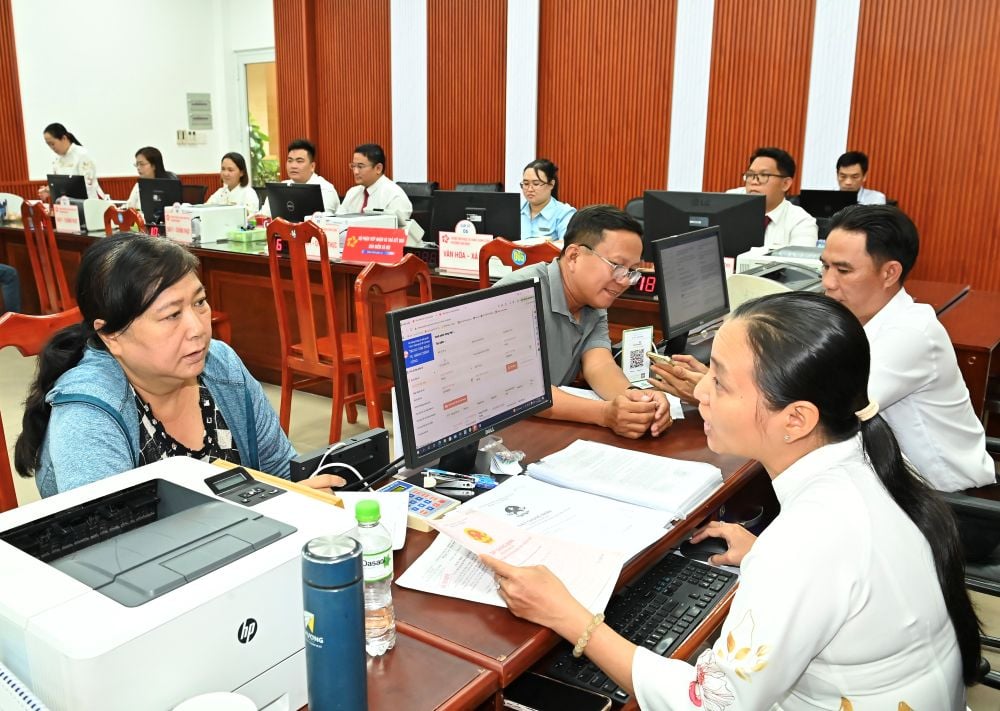
However, in response to the increasingly high demands of the cause of innovation, in order for socialist democracy to be practiced more widely and substantially, it is necessary to focus on implementing a number of solutions:
Firstly , building and perfecting the socialist rule of law state to ensure the people's democratic rights, in which special attention is paid to building an increasingly perfect legal system.
Second , focus on economic, cultural and social development to improve the conditions to ensure the implementation of democratic rights for the people (economic, cultural, social conditions, legal conditions...). Democracy is a political category belonging to the superstructure, democracy is closely related to the infrastructure, especially economic relations, so when the economic life of the people is still difficult, the people's education is not high, the mentality and habits of small farmers are still heavy, they will be obstacles to the practice of socialist democracy.
Third , develop the socio-economy; narrow the gap between rich and poor; resolutely fight against corruption, negativity and waste. This is an urgent requirement in the current period to promote democracy and mobilize the strength of all people.
Fourth , promote democratization in all areas of social life. Democratization is the process of transforming democracy from theory into reality in real life, a broad social movement that strongly attracts all classes of people. Practicing democratic standards and rules, and building a democratic lifestyle must gradually become the routine, habits, and needs of each person and the whole community. Democratizing all areas of social life is implementing the comprehensive content of democracy.
Socialist democracy is the driving force that strongly arouses patriotism, national self-reliance, the strength of great national unity and the aspiration to develop a prosperous and happy country; successfully build socialism and firmly defend the Socialist Republic of Vietnam in the new era of development, the era of national advancement./.
Source: https://tapchicongsan.org.vn/web/guest/nghien-cu/-/2018/1134702/nhung-thanh-tuu-ve-thuc-hien-muc-tieu-dan-chu-o-viet-nam-qua-gan-40-nam-doi-moi.aspx







![[Photo] Deep sea sand deposits, ancient wooden ship An Bang faces the risk of being buried again](https://vphoto.vietnam.vn/thumb/1200x675/vietnam/resource/IMAGE/2025/11/13/1763033175715_ndo_br_thuyen-1-jpg.webp)



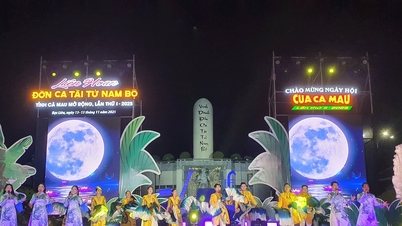
















































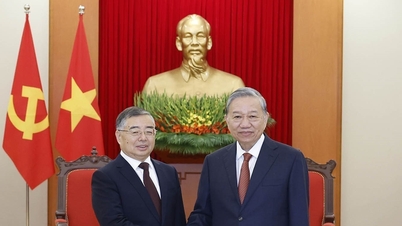
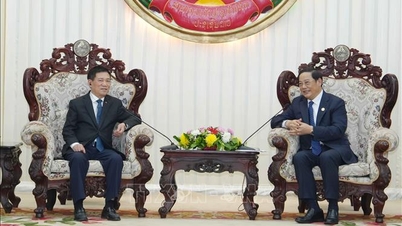





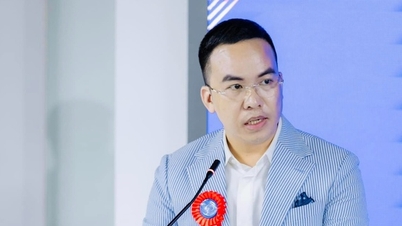
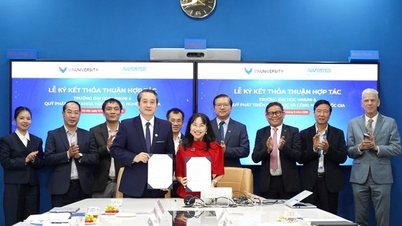

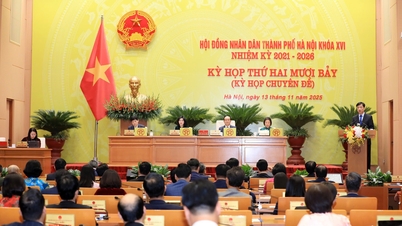

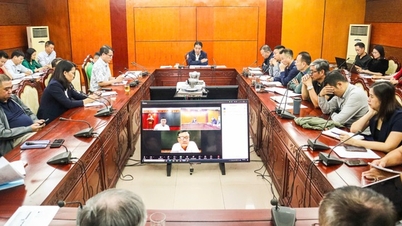

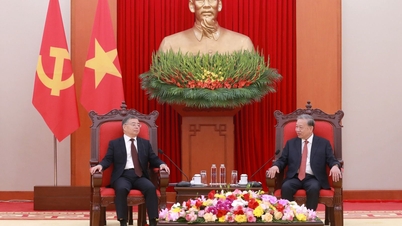
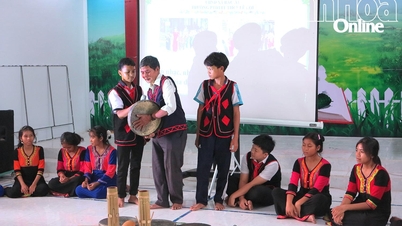

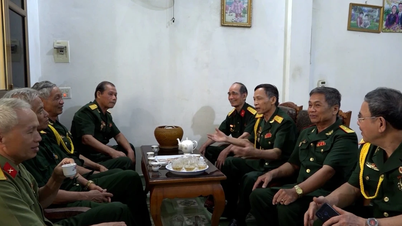

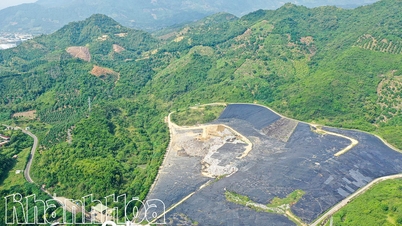
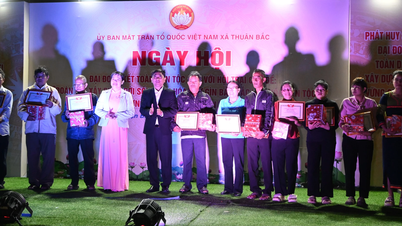
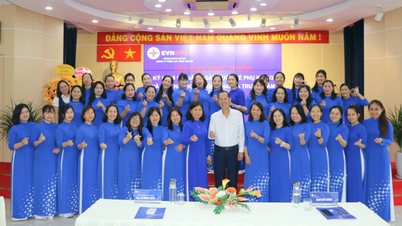
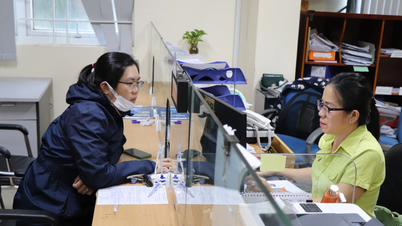





![Dong Nai OCOP transition: [Article 3] Linking tourism with OCOP product consumption](https://vphoto.vietnam.vn/thumb/402x226/vietnam/resource/IMAGE/2025/11/10/1762739199309_1324-2740-7_n-162543_981.jpeg)



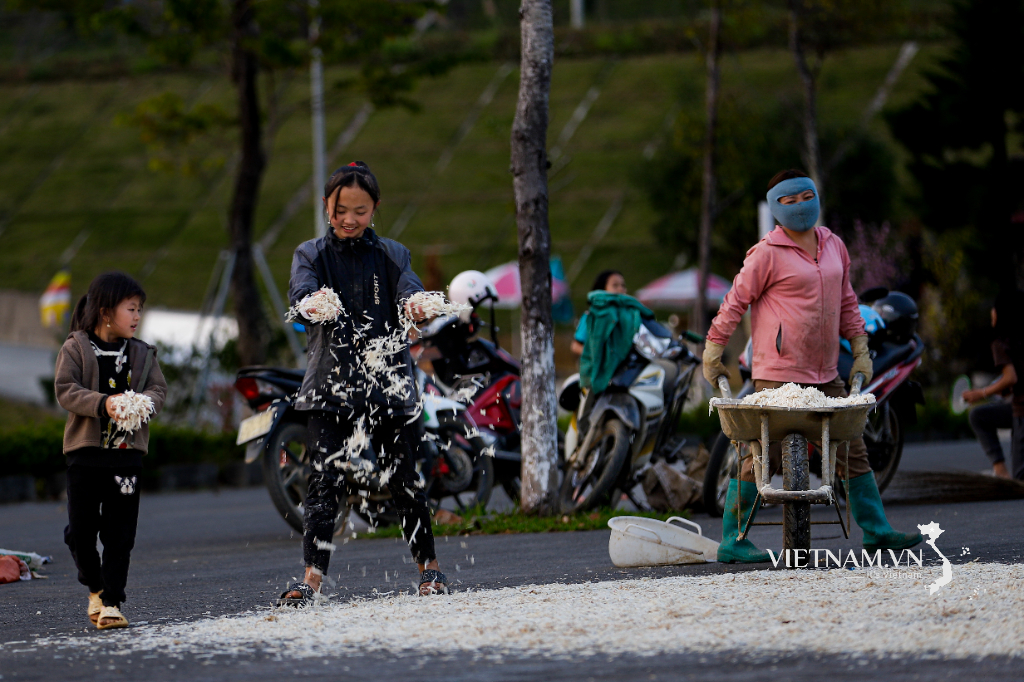



Comment (0)